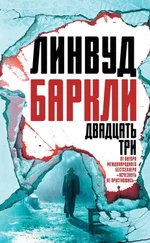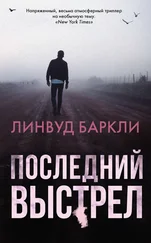And really, Jeremy argued, what difference did it make if his sperm was substituted for someone else’s? The women didn’t know, really, what they were getting anyway. They chose from a profile without actually knowing who the person was. And Jeremy’s profile would undoubtedly be superior to any other they might receive.
The man was crazy.
“No,” Gold said.
“I’m sorry?”
“No. No. No. No. I can’t make it any clearer. That violates more ethical standards than I can count. No, I’m sorry, Jeremy, it’s out of the question. I’m sorry. Look, I like you. You’re a wonderful guy, and maybe, maybe you’re right. You’re as perfect a human being as there could be. You’re Paul Newman and Albert Einstein and Warren Buffett all rolled into one. But what you’re asking, that’s simply not possible.”
Jeremy was unable to hide his disappointment. He took his arm from around the doctor’s neck. “Oh, Martin, I had such faith in you. I was sure you’d be able to do this for me.”
“Jeremy, if there was anything else, believe me, I would do it. But not this.”
Jeremy shook his head sadly. “This is not what I wanted to hear from you.”
Gold had not known what to say. He definitely wasn’t going to suggest he try some other doctor. No doctor should be involved in anything like this. Jeremy did not believe basic societal rules applied to him. What could you say to a person like that? Gold hated to disappoint him, because knowing this man, having access to this exclusive world, was the best thing that had happened to Gold since he walked the Brooklyn Bridge.
“What’s your wife’s name again?” Jeremy asked.
“I’m sorry?”
“Your wife. Her name?”
“Elspeth. You met her at that function last year. The museum fundraiser.”
“Lovely woman.”
Gold’s insides started to turn to jelly. “Why do you ask?”
“No reason.”
“Jeremy, please.”
“I’m just imagining her reaction when she sees a clip of you with your head between Whitney’s legs.”
And Jeremy smiled.
So there it was.
How many others were similarly compromised? The police chief? The governor? Judges and prosecutors?
Gold wrestled with the request for only a few days before bending to Jeremy’s will. He disposed of a sample provided by one Miles Cookson, but attached his name to the files of nine women implanted with Jeremy’s sperm.
Who could have guessed, back then, that in less than two decades there’d be thriving businesses devoted to testing your DNA and linking you to relatives you never knew you had? And that Jeremy’s sister would send in her DNA sample and be startled to learn there was at least one person out there who was very likely her niece? And that it didn’t make any sense at all.
That was when Jeremy realized the seriousness of his situation.
Those nine grown children out there. Living, breathing evidence of his arrogance and grandiosity. One day, more of them might send samples to WhatsMyStory or some other DNA service, and be linked back to Jeremy’s sister and, in turn, to him.
Jeremy was apoplectic.
His grand “nature vs. nurture” experiment had to be brought to an end prematurely. All evidence had to be destroyed.
Evidence being, of course, the people themselves.
It wasn’t enough that they be killed. They had to be vanished. DNA could be recovered from a corpse, even years into the future. A body could be exhumed, tested.
Not only that, DNA traces could be left behind. In hairbrushes, on phones, towels, sheets. Two of the best ways to eliminate DNA were bleach and fire. If the residences of these people couldn’t be burned to the ground, then they had to be thoroughly cleaned.
This string of murders would never have happened if Gold had not caved to Jeremy’s outrageous demands two decades earlier.
Gold knew that Jeremy had employed people to monitor his nine biological children over the years. Followed their academic progress, their interests. And, as the years progressed, which colleges, if any, they chose.
Before learning that his sister had sent her DNA to WhatsMyStory, what had distressed Jeremy Pritkin most was how normal these children were.
Oh, sure, some had shown some minimal talent in certain areas. One wanted to be an actress, another a graphic novelist. The one out in Portland was interested in medical research. But where were the child prodigies? The kid who could play Mozart on a piano at the age of four? The youngster who could solve a scrambled Rubik’s Cube in fifteen seconds? The computer geek who could figure out how to hack the Pentagon from his bedroom before puberty?
Normal. Or, to put it another way: disappointing.
It took a little of the sting out of it for Jeremy. In some ways, erasing these children from the face of the Earth was a way to hide his failures.
Or so Jeremy had told Gold.
There was one bridge, in neighboring Mount Vernon, that Gold viewed with special affection. It was by no means the longest bridge in the world, or the highest, and it certainly was not the most beautiful. It was no Golden Gate, and it sure as hell was no Sydney Harbour Bridge.
But he liked it because it reminded him of the bridges he built as a child.
It was the South Fulton Avenue bridge in Mount Vernon that spanned the Metro North Railroad line.
A simple Pratt through-truss bridge, two-lane, slightly more than 150 feet. Long enough to span the four tracks below. Partway across, a set of covered stairs that headed down to the tracks, and signs that read: MOUNT VERNON EAST STATION. TO STAMFORD AND NEW HAVEN, TRACK 4.
Once you crossed the bridge, the road became North Fulton Avenue. It was a dividing line between north and south, an equator of bridges.
Gold knew the history here and was happy to explain it to anyone who wanted to listen. The design for the Pratt bridges, and examples of them were scattered all over the country, came from Caleb and Thomas Pratt, who developed, in 1844, a bridge constructed of wood and diagonal iron rods. It was made up of sections called trusses.
As a boy, Martin lived only a few blocks from here, and he had walked or ridden his bike across this bridge probably a thousand times.
It seemed fitting this would be the one he jumped from.
There was a fence running along the walkways on both sides, but it was not so high as to be insurmountable. Just to be sure, Gold brought along with him a small plastic step stool that he kept in his storage unit for when he needed to bring a box down from the top of a stack.
The 1349 train would be coming into the station at 11:12, from the east, passing under the bridge before it came to a full stop at the platform. Gold figured if he arrived at 11:10, parked his Lexus right on the bridge, grabbed the step stool, and hurriedly bailed from the car, that would give him enough time to leap over the fence and land on the tracks seconds before the train got there. The fall would almost certainly kill him, but in the unlikely event it did not, the train would finish him off.
Gold, always a considerate sort, would leave the key to the Lexus on top of the dash. No sense making the police have to call for a tow, or worse, dig through his pockets once the fall and the train had made a mess of him. He wondered if he should have written a note for Elspeth, explaining why he was ending his life.
No, he thought. Better that she never know.
He held back one block from the bridge, and when his dashboard clock read 11:08, he put the car in Drive and hit the accelerator. There were no vehicles in his path, nothing to stop him from meeting his train on time.
The car rolled onto the bridge. Halfway across, he stopped the car, put it in Park, and killed the engine. He tossed his keys onto the dash, then grabbed the small step stool that was in the footwell of the front passenger seat.
Читать дальше
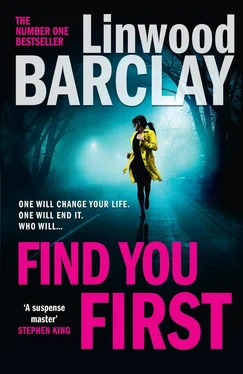
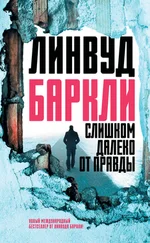
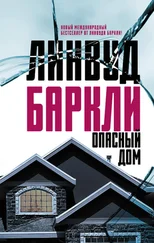
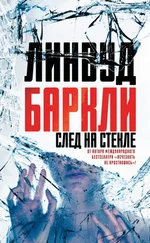
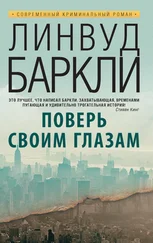
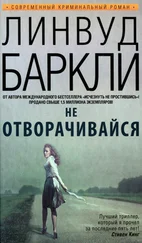
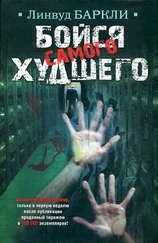
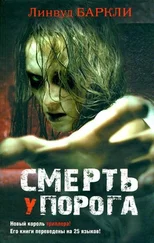
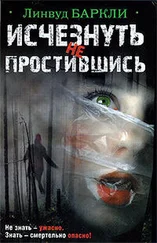
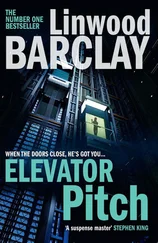
![Линвуд Баркли - Последний выстрел [litres]](/books/412435/linvud-barkli-poslednij-vystrel-litres-thumb.webp)
